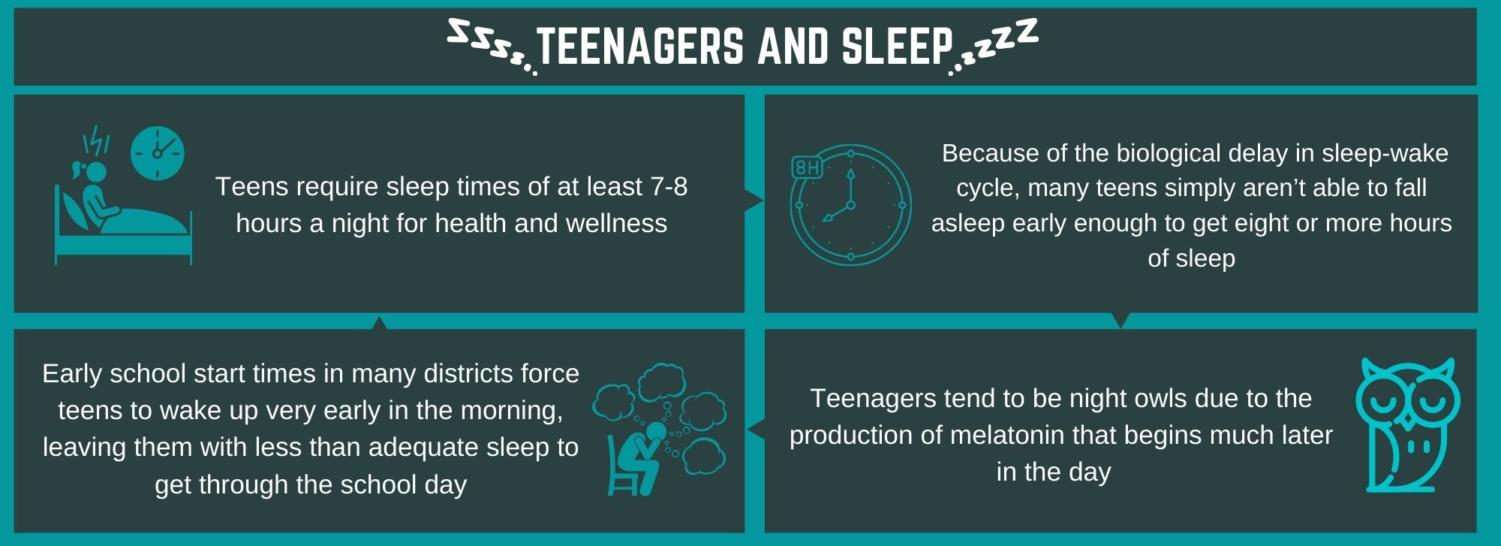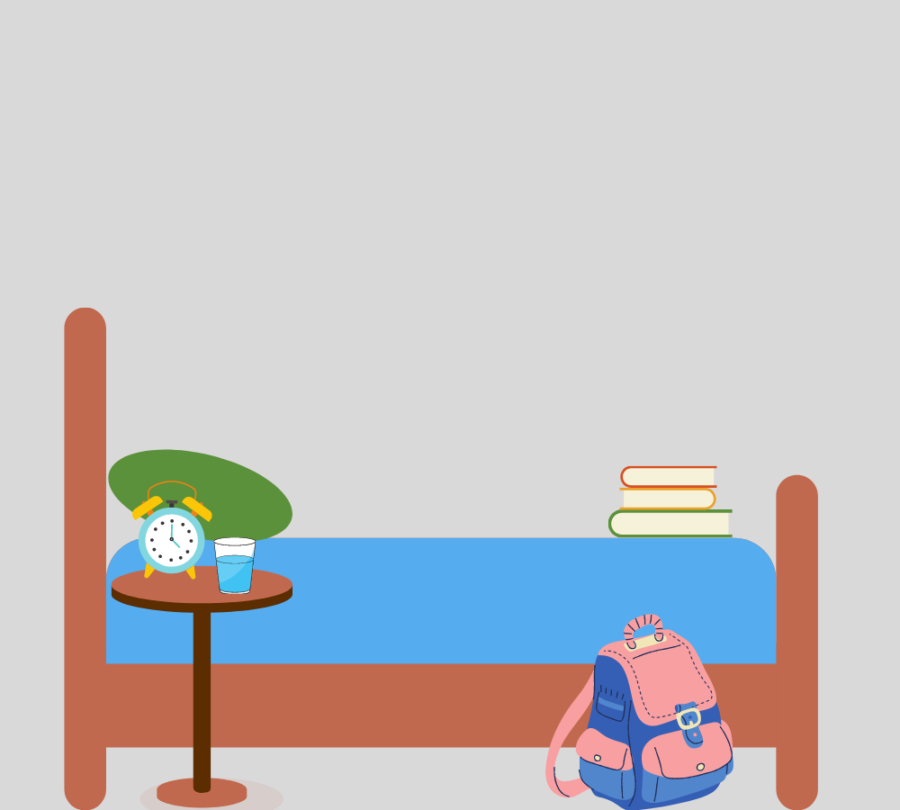Teenagers today constantly receive criticism for their sleep habits, but they may not have as much control over them as people tend to believe. Many of the teens at the school have even admitted to experiencing self-esteem issues after being judged by family and friends for staying up and sleeping past what is typically considered socially acceptable. However, biological processes have a larger impact on the adolescent brain than most people realize and it may not be as simple as just ‘going to bed earlier.’
From around 10-12 years old until the mid-twenties, the internal clock shifts forward. Instead of releasing the sleep hormone, melatonin, on the same schedule as adults and young children, the brain distributes it hours later.
“This creates a ‘no sleep’ zone around 9:00 or 10:00pm, just when parents are starting to feel drowsy…So instead of the natural waking happening around 7:00 am, for teens it’s not happening until around 9:00-10:00am,” Jameson said. “This also explains why teenagers are more groggy-feeling in the morning compared to younger children and adults—melatonin released earlier in evening is used up by morning, when it’s released later in the night, it takes longer to be used up.”
Because of this and other factors, such as school and socialization, adolescent sleep schedules look very different to what society deems appropriate. High school students especially have trouble developing a ‘healthy’ cycle.
“I think I do the best I can with what I have but between rehearsal schedule, school extracurricular activities, outside school activities, homework and if I want to have a slight social life then there’s just no way I can go to bed at normal time sometimes,” junior, Maddie Vokes said. “I start getting ready for bed at 10, but then I still usually have a little bit of homework and I go to bed at like 11:30…it depends on the night, depends on the amount of homework, but I usually end up sleeping about 6 hours if I‘m lucky.”
Most people, including parents, fail to realize all of these factors and end up making comments, like ‘maybe if you didn’t sleep with electronics’, ‘what if you just go to bed earlier’, and ‘you’re wasting your day,’ which often make teens feel worse about themselves and make sleep even harder to manage.
“I believe that if parents understood the teenage brain/body more, they might be more empathetic with their teenager,” Jameson said. “Even though parents were teenagers at one time, most people (especially teens) don’t understand everything going on in the brain with all of the hormonal changes, including the hormone that helps people go to sleep at night. Adults just know that at some point, they are ‘normal’ and they don’t think about all of the biological changes that took place over several years. Most people don’t want to think about it–they just want it to be over.”
With a little bit of research, parents can “understand that life is kind of hectic and I need sleep,” as sophomore, Landry Herrick said. Many online resources provide a starting point for learning, in just a few minutes.
“I think understanding the biological reasoning behind the teen sleep patterns is the first step,” Jameson said. “Then, I believe the parents should look at what all is going on with the teens life. Then, I think open communication should take place…parents and teenagers should work together to find a solution that works for them.”
As for the teens, time management and taking the opportunity to create a more manageable schedule can help make sleep cycles more regular.
“I think I probably should get my stuff done quicker and go to sleep quicker and make sleep a priority,” Herrick said.



